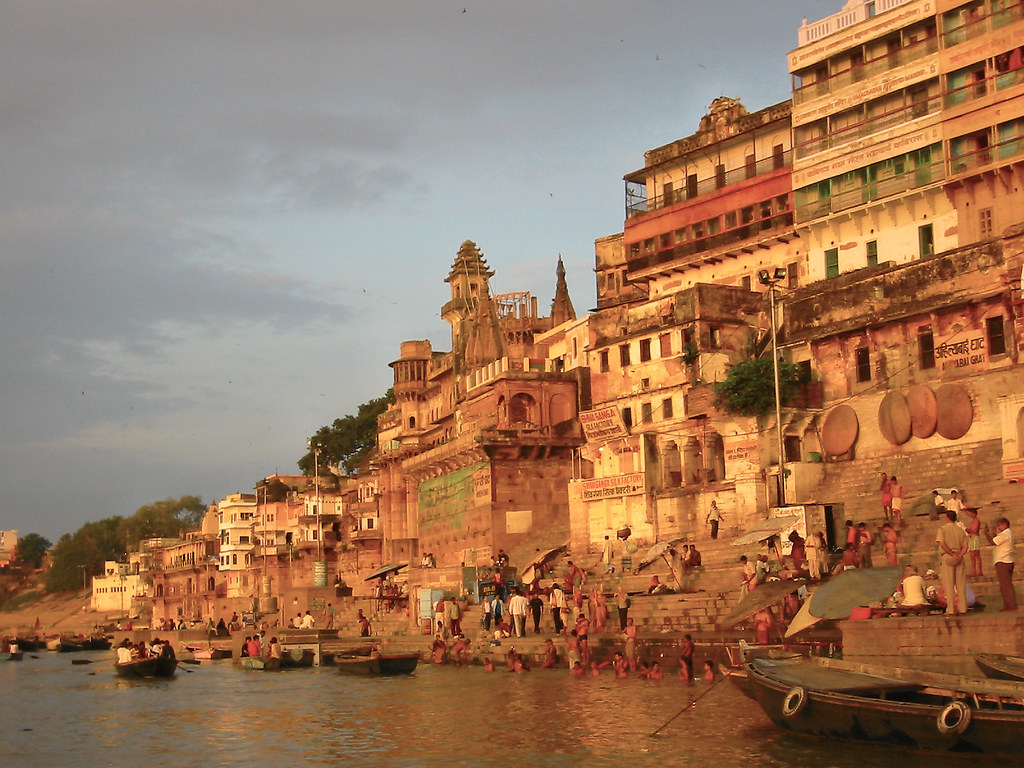Recognising river ecosystems or other entities of nature as having rights offers the possibility of managing and governing habitats based on the ecological realities of a region. When a river is recognised as a legal person, it has a right to maintain its spirit, identity and integrity.
Published in Frontline on October 14, 2021 by
A dolphin bobs up from the quiet flowing waters of the river. At a distance, fisherfolk are quietly angling while our boat chugs along the vast stretches of mangrove forests. We were on the revered and celebrated river Ganga near Sundarbans in West Bengal, where the daily lives of most of the river-dependent communities are still at ease with the rhythms of the river. But amid these serene activities there is a stark reality: excessive effluence flowing into rivers and polluting them, hydroelectric dams disrupting the water flow, and river interlinking projects threatening the riverine ecology, desecrating them in every conceivable way.
The latest Intergovernmental Panel on Climate Change (IPCC) report notes that humans have had an unprecedented and irreversible impact on climate. The factsheet for South Asia notes that the region will witness intense heatwaves and humid heat stress, glaciers will decline, and there will be a relative increase in sea levels.
According to the Central Pollution Control Board’s latest report, India has 45 critically polluted river stretches and 300-plus polluted stretches. One-third of India’s wetlands have been lost in the past four decades. The Ganga and the Yamuna, two of the most sacred rivers in India, are choking with untreated sewage and industrial waste that make their water unfit for consumption.
Excessive damming and diversion of rivers have resulted in sinking of deltas and affected the entire riverine ecosystem and the communities living downstream. The dominant view that “any drop of water flowing into the sea is a waste” is basically a formative strategy to dam and divert every drop of water for human use. Recent incidents of landslides and flash floods in the western Himalaya are indicative of the effect of large hydropower and other development projects on fragile ecologies.
All these are linked to several factors, including the extractive, anthropocentric model of development, centralised and bureaucratic governance with little participation of long-time users/residents of riverine areas, a lack of legally mandated and democratic institutional spaces for different interest groups to come together to share data/information/experiences, a lack of ecological understanding among decision-makers, and neglect of cultural/spiritual traditions relating to rivers.
A different course
With the onset of climate change and potential mass extinction of species, and the closing window of opportunity to take meaningful action, a growing number of communities, organisations and governments around the world are calling for anthropocentric legal and governance systems to be replaced with ecocentric ones. The last 15 years have seen a dramatic increase in the number of laws based on ecological jurisprudence—a legal philosophy that sees nature not as a set of objects to be exploited but as a community of subjects (humans and non-humans) who are connected through interdependent, reciprocal relationships.
In 2017, the Uttarakhand High Court ruled (in two separate orders on March 22 and 30) that the Ganga, the Yamuna, their tributaries, and the glaciers and catchments feeding these rivers in Uttarakhand had rights as a “juristic/legal person/living entity”. In 2018, the same High Court ruled that the entire animal kingdom had rights similar to that of a living person (Narayan Dutt Bhatt vs Union of India). In March 2020, the Punjab and Haryana High Court passed an order declaring the Sukhna Lake in Chandigarh city a living entity, with rights equivalent to that of a person.5 The Bangladesh High Court recognised the river Turag as a living entity with legal rights and held that the same would apply to all rivers in the country. The Bangladesh judiciary continues to supervise the rights of nature and has ordered the closure of 231 unauthorised factories along the Buriganga river as an enforcement of the rights. Similarly, in Nepal, there is a new effort to recognise the rights of nature which originates from its long-standing recognition of the public trust doctrine…
Read the full article HERE.
Photo credit: “Sunrise Varanasi, Ganga River” by ironmanixs is licensed under CC BY-NC-SA 2.0

